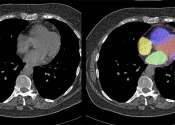Studies highlight need for tailored treatment options for women with peripheral artery disease
New clinical results highlight the need for inclusive approaches and comprehensive examinations of treatment options for peripheral artery disease (PAD), including endovascular therapy and revascularization. The data were ...
May 3, 2024
0
0









